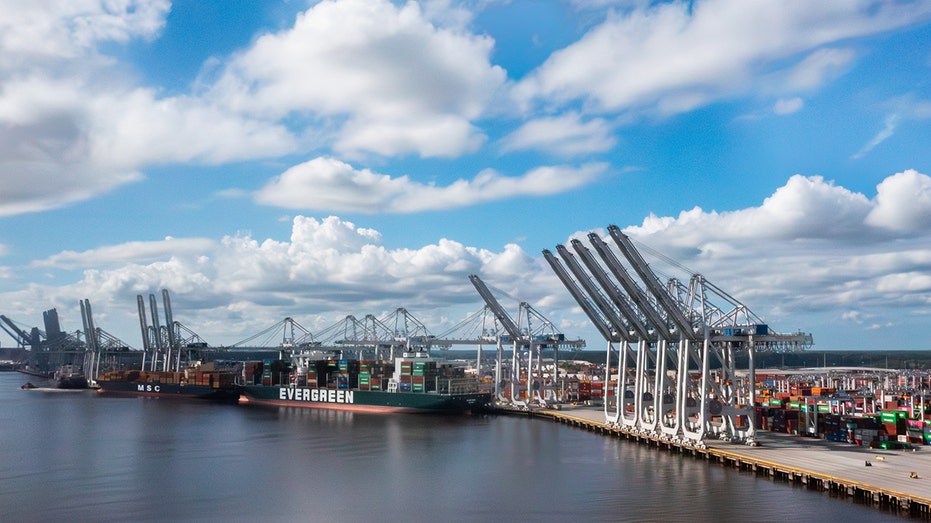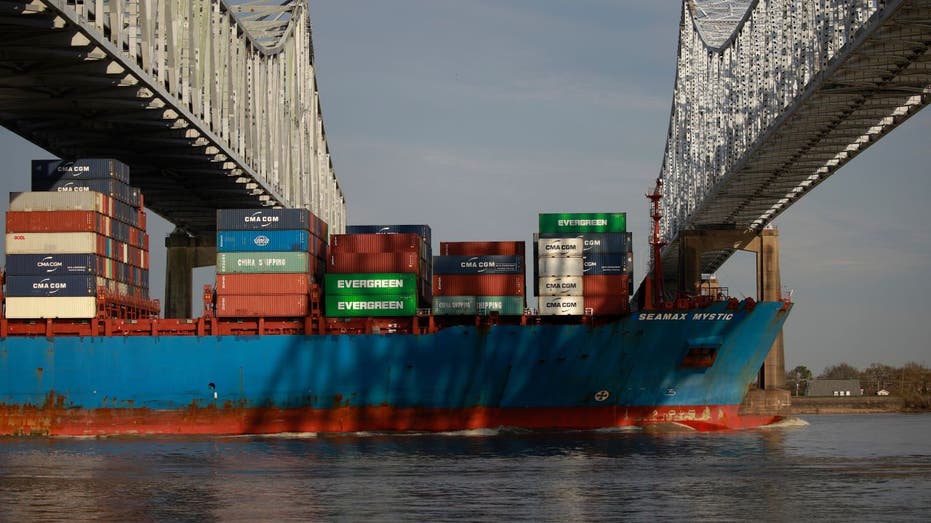Unionized dockworkers at 36 East and Gulf Coast ports went on strike early Tuesday amid an impasse in negotiations over a new contract with a group representing port employers.
The International Longshoremen’s Association (ILA), which represents 45,000 dockworkers, began its first strike since 1977 after its six-year contract with the U.S. Maritime Alliance (USMX), which represents port employers, expired Monday night.
Negotiations between the ILA and USMX have been deadlocked thus far over the union’s demands related to wage hikes and compensation, as well as protection from automation at ports.
The ILA has said that it will exempt cruise ships and military cargoes from the strike and will continue to handle those to prevent disruptions to travelers’ schedules as well as national security.
PORT STRIKE WILL BRING ANOTHER HIT TO FARMERS, SAYS FORMER TRUMP OFFICIAL
USMX reportedly made a new offer to the ILA on Monday afternoon that would’ve raised wages by nearly 50% over the new contract as well as tripling employer contributions to retirement plans, better health care and kept language about automation in the deal. Sources told FOX Business that the ILA rejected the offer and didn’t make a counter.
The strike comes after USMX filed an unfair labor complaint with the National Labor Relations Board against the ILA last week, arguing that the group was breaking labor laws by refusing to negotiate. The ILA criticized the move as a “publicity stunt” and said USMX should file labor complaints against port employers for not paying dockworkers better wages.
THE TAFT-HARTLEY ACT: WHY BIDEN COULD USE THIS LABOR TO PREEMPT A PORT STRIKE

U.S. seaports from Maine to Texas will be impacted by the strike. Those ports collectively handle about half of U.S. imports and are also critical hubs for exports from American businesses.
Imports of cars and auto parts, agricultural products like bananas, machinery, fabricated steel, furniture, apparel and more will be affected. East and Gulf Coast ports also handle significant percentages of exported cars and auto parts, pharmaceutical products, beef, pork, poultry, eggs, wood, plastics and other products or commodities.
An analysis by J.P. Morgan estimated the daily cost of a port strike by East and Gulf Coast port workers would cost the U.S. economy between $3.8 billion and $4.5 billion per day as operations slow.
LOOMING PORT STRIKE BY THE NUMBERS: NEW YORK, SAVANNAH, BALTIMORE EXPECTED TO SEE DISRUPTIONS

President Biden, whose administration has tried to facilitate talks between the two sides, has said that he won’t use a federal labor law known as the Taft-Hartley Act to intervene in the strike. Under that law, Biden could take action that results in an 80-day “cooling off” period for negotiations to resume while workers are back at work.
The U.S. Chamber of Commerce, the largest trade group representing American businesses, urged Biden in a letter to invoke Taft-Hartley to “protect our economy” by avoiding a work stoppage.
“Taft-Hartley would provide time for both parties in negotiations to reach a deal on a new labor contract,” Chamber President Suzanne Clark wrote on Monday. “Significant differences remain between USMX and ILA on a new contract that cannot be resolved before the current one expires today.”
FOX Business’ Daniel Hillsdon contributed to this report.
Read the full article here

















